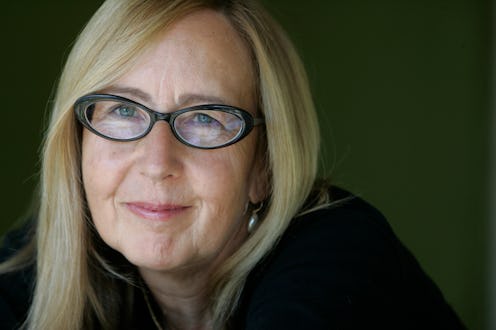Books
The Quarter-Life Crisis in the California Woods

Early on in Michelle Huneven’s Off Course (Sarah Crichton Books), the novel’s main character Cressida “Cress” Hartley remembers how she used to while away the long hours of parentally demanded road trips: she “learned … how to pull in deep, so time would pass in a blip.” And that’s just what Cress does more than a decade later, but by then it’s not just a neat trick to make a car ride slip by; instead, it’s a seemingly accidental decision that plunges her into a quarter-life crisis that nearly destroys the rest of her existence.
Recently done with her economy grad school work, Cress decides she'll hole up at her parents’ cabin in the California Sierras —really an aging A-frame packed with cast-off household junk that her parents have all but abandoned in favor of a glitzy new home being built on the same lot — and bang out her necessary dissertation at The Meadows, free of distractions. It’s certainly a well-intentioned plan, but when Cress gets up to the cabin and the close-knit community around it, all she finds are distractions.
Cress has always felt some level of isolation — her teen years were free normal youthful hijinks thanks to her overbearing parents, and even her college years were spent feeling out of place in her male-dominated field of study — so the community she finds up at The Meadows, complete with both male attention and varied female friends, feels fulfilling to her in unexpected ways. Although she initially embarks on a romantic dalliance with the jovial Jakey, a shiftless Cress eventually finds her way into the arms of the very haunted (and very married) Quinn, a consuming romance that saps her of any desire for anything else (which includes the “diss,” which Cress only manages to write in fits and starts).
Cress’ affair with Quinn changes her in a number of ways — not all of them good — leaving her eager for his attentions and only able to see her own accomplishments and desires through his eyes. “Quinn had chosen her,” Huneven writes early in their romance, setting up a crucial part of Off Course that will carry over the next hundred pages: that someone else somehow foretold this and that Cress holds no responsibility for her actions.
The book’s location and setting plays a large role in Cress’ life, and Huneven's evocative prose brings the California wilderness to vivid life, without reverting to overly lyrical or poetic musings to make it stick. Although Huneven’s novel leisurely chronicles Cress’ years in the Sierras, its final pages zip through a large chunk of her life post-Meadows, and the effect is disconcerting. With so much time and attention paid to Cress’ disintegration at the hands of both Quinn and her own desires, it’s disappointing that her eventual maturation is glossed over in so few pages.
Huneven’s book is set in the '80s, but the author wisely resists overloading her prose with exaggerated details meant to repeatedly drive the point home (there are a few stray references to stirrup pants and Reagan, and that’s about it). Instead, Off Course feels modern, and Cress’ story is just as applicable to the world of 2014 as it is to 1984.
Cress may not be a traditionally likable character (and she’s certainly one prone to huge mistakes), but Huneven still makes her feel relatable and real. Although Cress may not immediately appeal to readers, it seems likely that she’ll eventually earn their respect, and possibly even some actual admiration. Whatever the judgement, she'll stick with you long after you flip the cover closed on Huneven’s wise and wily work.
Image: Michelle Huneven